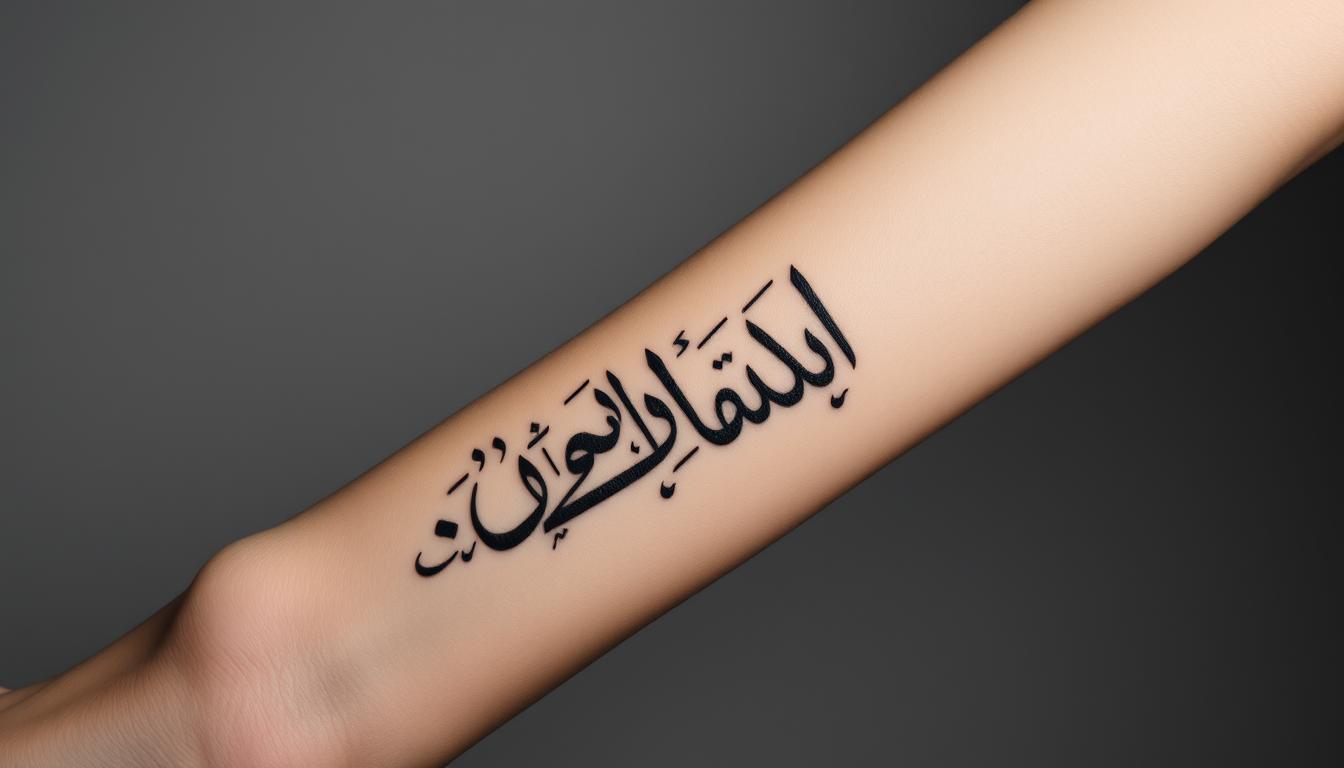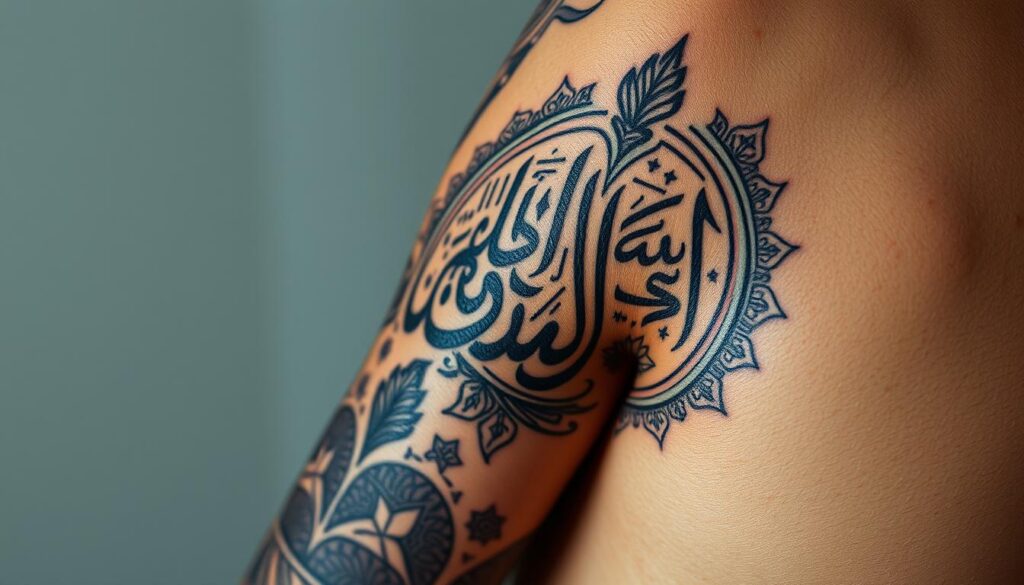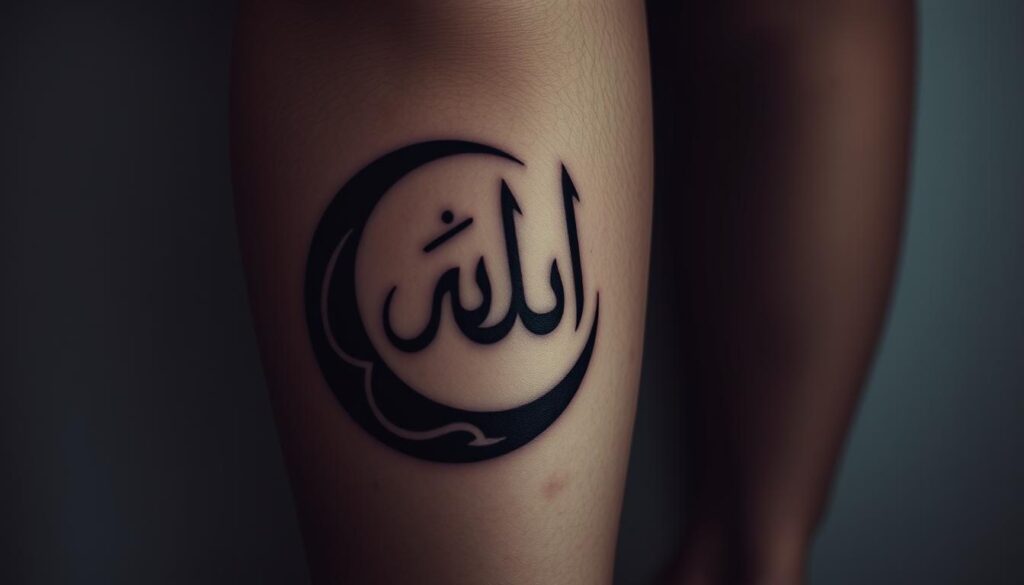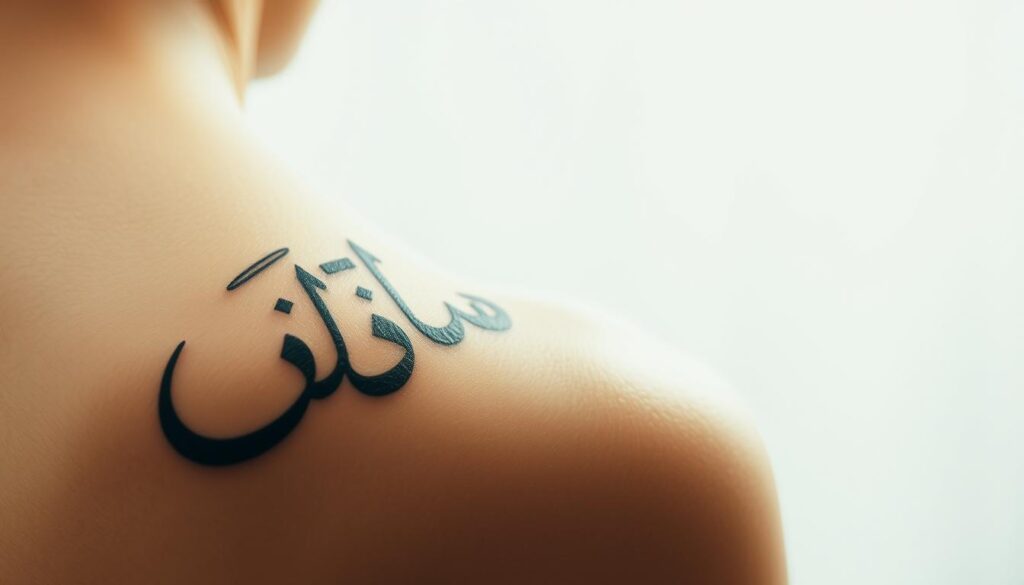
The question of whether tattoos are permissible in Islam is a complex one, with varying opinions among scholars. In traditional Islamic views, tattooing is considered haraam due to the involvement of piercing the skin and injecting dye.
However, some scholars argue that tattoos can be allowed if they don’t include holy names or symbols, and if women cover them from non-Mahram men. This diversity in opinion stems from different interpretations of Islamic texts and the cultural significance of body art.
Understanding the meaning behind Islamic rulings on tattoos requires examining textual evidence and scholarly interpretations. This article aims to provide a comprehensive overview of the Islamic perspective on tattoos, addressing common questions and exploring different scholarly views.
Key Takeaways
- The permissibility of tattoos in Islam varies among scholars.
- Traditional Islamic views consider tattooing as haraam.
- Some scholars allow tattoos if they are not sacred and are kept private.
- Islamic rulings on tattoos are based on interpretations of Islamic texts.
- The cultural significance of body art influences Islamic perspectives on tattoos.
- This article explores both traditional and contemporary scholarly views on tattoos in Islam.
The Islamic Ruling on Tattoos
Understanding the Islamic perspective on tattoos requires examining various scholarly opinions. The debate surrounding the permissibility of tattoos in Islam is complex and multifaceted.
Different Scholarly Opinions
Islamic scholars have varying views on tattoos, ranging from considering them haram to debating the context in which they are permissible. Some scholars argue that the primary evidence against tattoos comes from authentic hadith collections.
- Some hadith specifically mention the Prophet Muhammad cursing those who perform and receive tattoos.
- The hadith of Ibn Mas’ud is frequently cited as the strongest evidence against tattoos in Islam.
Textual Evidence from Hadith
The primary textual evidence against tattoos comes from hadith where the Prophet (peace and blessings of Allah be upon him) cursed the one who does tattoos and the one for whom that is done. ‘Abd-Allaah ibn Mas’ood (may Allah be pleased with him) said: “May Allah curse the women who do tattoos and those for whom tattoos are done, those who pluck their eyebrows and those who file their teeth for the purpose of beautification and alter the creation of Allah.”

Why Are Tattoos Haram in Traditional Islamic View?
The Islamic view on tattoos is largely influenced by the concept of altering Allah’s creation. This perspective is rooted in Islamic teachings and has been debated among scholars.
Changing Allah’s Creation
In Islam, altering Allah’s creation is considered a significant issue when it comes to tattoos. The permanence of tattoos is seen as a key factor in this ruling. As stated in Islamic texts, changing the creation of Allah is forbidden. This is based on the understanding that the body is a trust from Allah, and permanently marking it is considered an alteration of this trust.
A quote from Islamic scholarship highlights this: “It was also suggested that what is forbidden is only that which is permanent, because that is changing the creation of Allah; as for that which is not permanent, such as kohl, which is used for adornment by women, that is permitted by the scholars.”
Permanent Body Modification vs. Temporary Adornment
Islamic jurisprudence distinguishes between permanent body modifications like tattoos and temporary adornments such as henna or kohl. The permanence of tattoos, which alter the skin for life, is a key factor in traditional rulings against them. In contrast, temporary beautification methods that do not permanently change the body are generally permitted.
The distinction between permanent and temporary modifications helps explain why henna is widely accepted while tattoos are controversial. The Prophet Muhammad’s approval of temporary beautification methods while warning against permanent alterations further supports this distinction.

Conditions and Exceptions in Islamic Jurisprudence
In Islamic jurisprudence, the ruling on tattoos is not absolute and comes with certain conditions and exceptions. The complexity of this issue is addressed through various interpretations by scholars.
Tattoos and Ritual Purity (Wudu)
The presence of tattoos does not inherently invalidate Wudu (ritual purity). According to Islamic law, having a tattoo does not prevent one from performing their daily prayers, as long as the tattoo does not contain un-Islamic imagery or content.
Gender-Specific Considerations
Islamic rulings on tattoos also consider gender-specific aspects. For instance, the permissibility of having a tattoo may be viewed differently for men and women, with some scholars emphasizing modesty for women.
Pre-Conversion Tattoos
For individuals who convert to Islam, pre-existing tattoos are generally not considered a barrier to their new faith. The principle “Islam erases what came before it” applies, meaning converts are not held accountable for tattoos obtained before embracing Islam.
| Category | Ruling |
|---|---|
| Pre-conversion tattoos | Not considered a barrier to faith |
| Tattoos with un-Islamic content | May require removal or covering during prayer |
| Tattoos and Wudu | Does not invalidate ritual purity |

The Islamic perspective on tattoos emphasizes ease and compassion, particularly for converts. The focus is on future adherence to Islamic principles rather than the removal of past tattoos, unless they contain explicitly un-Islamic content or the name of deities other than Allah.
In conclusion, the presence of a tattoo on the body is not seen as a significant issue in Islam, provided it does not promote un-Islamic values. The rulings surrounding tattoos highlight the religion’s emphasis on compassion and the facilitation of faith.
Conclusion: Navigating Tattoos as a Muslim
Ultimately, the decision to get a tattoo is a personal choice that should be informed by Islamic principles and values. Muslims should research different scholarly opinions and consult trusted religious authorities when making decisions about body art. Understanding the meaning behind different rulings helps Muslims make informed choices. For women, there are specific considerations regarding tattoo placement due to Islamic modesty requirements. The goal should be to honor one’s body as a trust from Allah while expressing faith and identity in appropriate ways.
In navigating this complex issue, Muslims can find a way to balance personal expression with religious obligations, ensuring that their choices align with their values and understanding of Islamic teachings.
